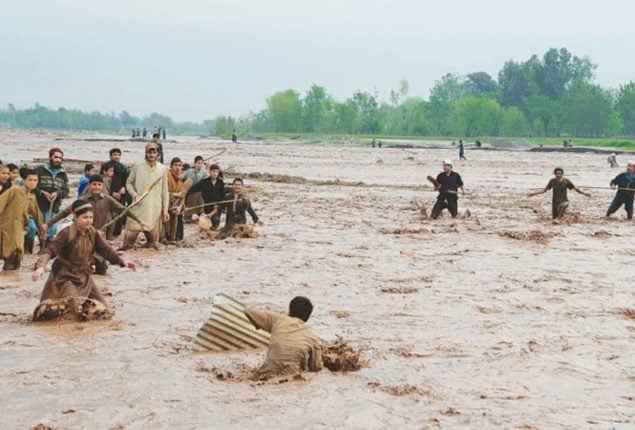PM Shehbaz directs NDMA to accelerate relief efforts in rain-hit areas
ISLAMABAD: Prime Minister Shehbaz Sharif telephoned Chairman of National Disaster Management Authority...

Pakistan loses 23% of its GDP annually due to disasters: Experts
ISLAMABAD: Chairman, National Disaster Management Authority (NDMA), Lieutenant General, Inam Haider Malik said Pakistan should must embrace not only traditional infrastructure but also materials suited to the country’s environment.
The National Disaster Management Authority (NDMA) hosted a seminar focused on “Disaster Resilient Infrastructure,” in collaboration with Bahria University, aiming to address the pressing need for climate adaptation and infrastructure resilience in Pakistan.
Chairman NDMA, Lieutenant General Inam Haider Malik led discussions on the country’s preparedness for future disasters, highlighting the critical threats posed by climate change and the steps being taken to mitigate its impact.
“Resilience won’t come solely from the type of construction but from adapting to what we have,” he emphasized. He lauded NDMA’s technological efforts, including simulations of the 2022 floods and advanced weather forecasting, noting that “technology today can not only address present needs but future ones as well.”
In his keynote address, Lieutenant General Malik warned that if global temperatures exceed the 1.5°C threshold, countries like Pakistan would face unprecedented climatic disasters. “From glacial melting to recurring floods, we are already witnessing severe climate impacts,” he said.
He cited the 2022 floods, which caused massive devastation, with over 8,000 miles of roads and 480 bridges damaged, leading to significant economic losses. Recovery and rehabilitation remain ongoing challenges.
The seminar featured experts from various fields, all underlining the importance of infrastructure resilience in combating climate change. Dr. Shafqat Munir, Deputy Executive Director at the Sustainable Development Policy Institute (SDPI), pointed out that it is not the disasters themselves but inappropriate infrastructure that leads to high mortality.
“Pakistan is one of the ten countries most impacted by climate change. Unplanned development, deforestation, and pollution are aggravating these crises,” he said. Drawing comparisons, he highlighted how community preparedness in the Philippines has helped them manage frequent cyclones and floods more effectively.
Munir further urged the need for integrating Disaster Risk Reduction (DRR) into development plans and addressing governance issues. He identified five major impacts of disasters: economic, physical, human, social, and environmental capital, noting that “Pakistan loses 23% of its GDP annually due to disasters.”
Prof. Engineer Dr. Azam Khan of NUST stressed the urgent need for a comprehensive infrastructure inventory in Pakistan.
Catch all the Pakistan News, Breaking News Event and Latest News Updates on The BOL News
Download The BOL News App to get the Daily News Update & Follow us on Google News.